

THE MANOSPHERE,

Young men are searching for connection.
the internet delivers both opportunities and challenges.
the internet delivers both opportunities and challenges.
A deep dive into the digital lives of young men — and how we can unlock healthier paths toward identity, connection, belonging, and care
Young men today are growing up in a world of uncertainty – socially, emotionally, economically. And more than ever, they’re turning to online spaces, like Reddit threads, Twitch streams, Discord chats, and TikTok feeds to make sense of it all.
Beneath the headlines about masculinity in crisis, there is a deeper story: a generation struggling to feel seen between economic precarity, social disconnection, and a lack of clear, healthy models of manhood.
Behind a polarized culture where masculinity is debated but rarely reimagined, behind all the noise, one truth stands out: young men are looking to belong.
And that’s an opportunity we can’t afford to miss.
FEELING SEEN IN A DIGITAL WORLD
A generation growing up online — searching for belonging in the absence of connection.
2/3 of men aged 18-23 say
“No one really knows me well.”
They don’t just feel lonely but invisible.
Men who agree with the statement 'No one really knows me well'
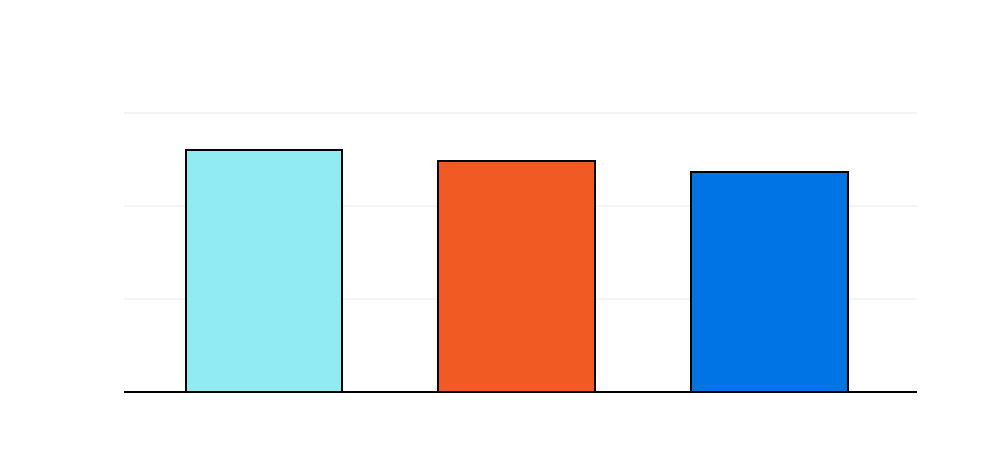

48%
say their online lives feel more meaningful than their offline ones.
The internet is where they search for connection.
40%
trust one or more misogynistic voices online.
These voices are acknowledging men’s problems and validating their frustrations.
This isn’t a story about broken masculinity.
It’s a story about unmet needs — and where young men are going to fill the gaps.
What if we stopped asking
“What’s wrong with men?”
and started asking
“What are they actually looking for?”
While the world – and the way we relate to one another – is changing faster than ever, the conversation around masculinity is growing louder. Yet many young men are left without clear, relatable role models to follow. With little guidance and a growing sense of uncertainty, they turn to the internet – not out of hate, but out of need.
What looks like disconnection is often something deeper: a search for belonging, identity, and purpose.
And if we want to understand what’s really happening, we have to start there.
WHERE MEN SPEND THEIR TIME
To understand young men, we need to understand the digital worlds they live in.
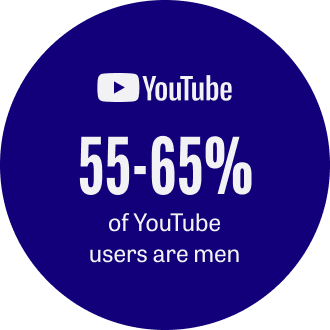
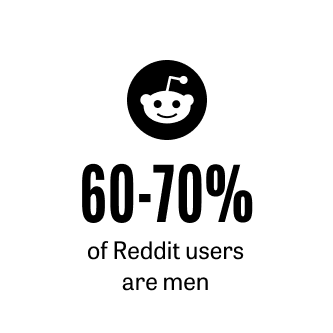
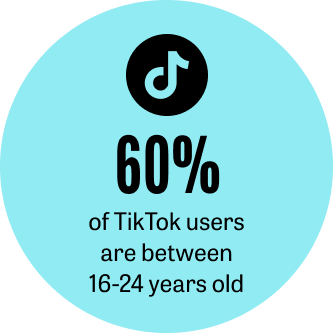
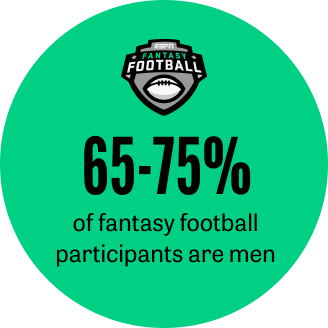
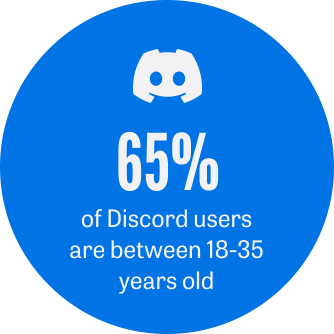
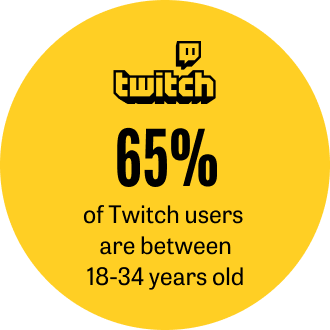
We analyzed six platforms where audiences skew younger and majority male.
These aren’t just platforms
they are the new locker rooms, classrooms, and community centers.
This is where young men learn to talk, compete, connect, cope, and belong.
Masculinity gets shaped through livestreams, memes, challenge videos, fitness groups, fantasy leagues, and late-night voice chats.
Some spaces are harmful. Some are healing.
Many are just deeply human.
online friendship-building journey
Mapping relationships from URL to IRL
Matching via common interest
Young men connect in digital communities united by a shared interest or goal
Developing Closeness and Trust Building
Relationships deepen as users migrate to platforms with more intimate communication features
Fears
Oversharing or over-communicating, asking too many questions, getting too personal, proposing an online event or creating a smaller online group and no one showing up
In-person Encounters
Linking up face-to-face at gaming conventions or sporting events creates deeper bonds and trust in relationships previously lived out online
Maintenance
Keeping relationships alive based on daily interaction or consistent rituals
Loss
If expectations don’t match or frequency of interaction dies down
If we want to reach young men, we can’t ask them to come to us.
We have to meet them where they already are.
We often talk about young men’s challenges as if they happen offline – in classrooms, homes, or workplaces. But today, identity is being shaped somewhere else entirely: online. From Twitch streams to Discord servers, Reddit threads to YouTube channels, these aren’t just platforms.
They’re ecosystems of influence — where beliefs are formed, behaviors are modeled, and belonging is built.
In 2023, more time was spent watching a single YouTuber than any of Netflix’s top shows. MrBeast’s influence is a prime example; his YouTube channel boasts over 375 million subscribers and has generated significant revenue through high-production stunts and philanthropic efforts, resulting in an immense viewership.
Beat Ronaldo, Win $1,000,000
264 million views
World’s Deadliest Laser Maze!
261 million views
What young men see, who they follow, and what gets algorithmically amplified is shaping their sense of self in ways we’re only beginning to understand. And the content that holds their attention isn’t always neutral – it’s often emotional, sensational, and designed to keep them watching – and often for the sake of profit.
To understand what young men are going through, we have to understand the digital worlds they live in — and the narratives being fed to them every day.
WHAT MEN ARE LOOKING FOR ONLINE
Behind every search is a question about identity, connection, and belonging.
Romantic advice
dating help
emotional connection
Dating is hard, leading to frustration, fear of rejection, and isolation. Men often struggle with romantic cues, prompting them to seek advice online.
“I dont think anyone can fall in love with me”
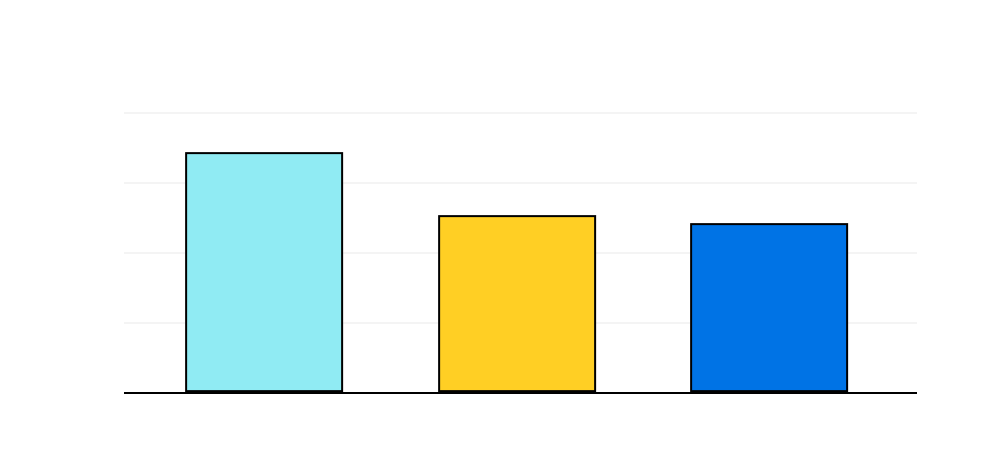

How to be the asshole women love.

finances
success
skill-building
Male influencers giving advice on topics like investments, crypto, and step-by-step guides to help teens become millionaires have enormous followings.
My New $16,000,000 House.
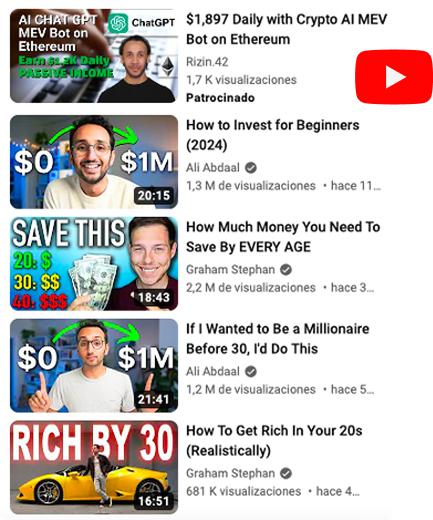
Mental health support
Loneliness
Depression
“I had thoughts about suicide in the past 2 weeks”
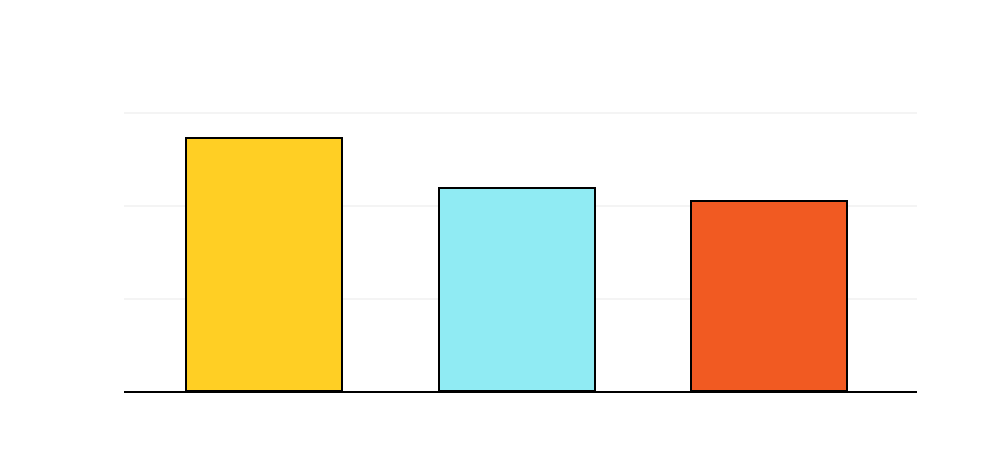

A low sense of self worth, loneliness, a lack of friendship, suicide, lack of purpose, depression, and discrimination are all topics that arise when men open up online.
5 Life Changing Habits of Highly Successful People!
Why Men Should NOT Show Emotion
fitness
Physical appearance
strength
Self-worth is closely tied to physical appearance and societal approval. Men see a path towards success if they are perceived as attractive.
The Fastest Way to Get Lean (FROM ANY BODY FAT LEVEL!)
Full Masculinity Guide: Become a Man
fatherhood
caregiving
real-life responsibilities
Fathers go online to vent and seek advice. They express how they feel judged as dads, what scares them about fatherhood, and seek resources and advice.

What if we treated these not as warning signs
but as entry points?
Every search is an opportunity to connect.
Look beyond the clickbait and controversy, and you’ll find something surprising — and deeply human:
Most young men online aren’t trying to provoke. They’re trying to understand themselves.
They search for dating advice, financial tips, workout routines — simple, well-intentioned questions.
But without healthy guidance, those searches are often redirected. Algorithms push them toward extremes. Influencers optimize for outrage.
And the manosphere steps in with persuasive, emotionally charged answers.
If we want to shift the narrative, we have to start by understanding what they’re really searching for.
Our opportunity? Building connection.
If we want different outcomes, we need to build different systems.
If the problem is alienation – from social structures, communities, and meaningful relationships – then the solution isn’t blame – it’s belonging. Our research points toward a powerful truth: young men want to connect. They want to build skills, grow relationships, and be better – but the online world isn’t designed to help them do that.
It’s time to build better pathways: ones that speak their language, respect their realities, and unlock healthier models of masculinity, care, and community.
From Insight to Action
Building pathways toward belonging means rethinking the systems young men move through every day. The path forward isn’t abstract – it’s actionable. Below are six opportunities to reshape those systems: tangible ways to turn understanding into meaningful change.
Train the role models
Influencers, streamers, moderators – these are some of today’s most powerful teachers. The behaviors they model shape what millions of young men see as normal and aspirational. Let’s work with them, not against them – and equip them to model empathy, care, and connection.
Design value systems that reward care
Every online space has its own metrics – likes, rankings, views. What if those systems rewarded kindness instead of hate? We can design platforms that elevate empathy, emotional intelligence, and solidarity.
Build relationship skills into online life
Young men want better tools for dating, friendship, intimacy, and communication – but they rarely get them. Let’s bring healthy relationship skills into the platforms and spaces they already trust.
Normalize identity experimentation
The internet is a place to explore who you are – or want to become. But rigid norms and shame often get in the way. Let’s create spaces where identity experimentation is safe, supported, and even celebrated.
make space for vulnerability
Support isn’t accidental. With strong moderation, accessible mental health resources, and thoughtful design, we can create environments where young men feel safe opening up – without fear of ridicule.
Leverage shoulder-to-shoulder connection
Many men bond not through talking, but doing – gaming, building, competing, collaborating. Let’s embed opportunities for friendship and emotional growth into these shoulder-to-shoulder experiences.
This is a Turning Point — Not the End of the Story
What happens next depends on what we build — and who we choose to include.
Online life isn’t going away – it’s growing, evolving, and shaping an entire generation’s sense of identity, connection, and belonging. If we want to build a more caring, more equal future, we can’t afford to leave young men behind. This moment is a turning point – an opportunity to meet them where they are, speak their language, and co-create digital ecosystems that reward care, not hate.
The path forward isn’t abstract — it’s tangible, and it’s already within reach. But it requires all of us — researchers, creators, platforms, educators, and communities — to show up differently.
We’ve seen what happens when we ignore young men’s needs.
Now we have a chance to respond differently.
Not with blame. Not with shame.
But with belonging, empathy, and real connection.
Every click is a chance to redirect.
Every space is an opportunity to rebuild.
Every link is a pathway to connection.
To learn more
For further inquiries, contact our Senior Specialist on Digital Strategies, Caroline Hayes, at c.hayes@equimundo.org.